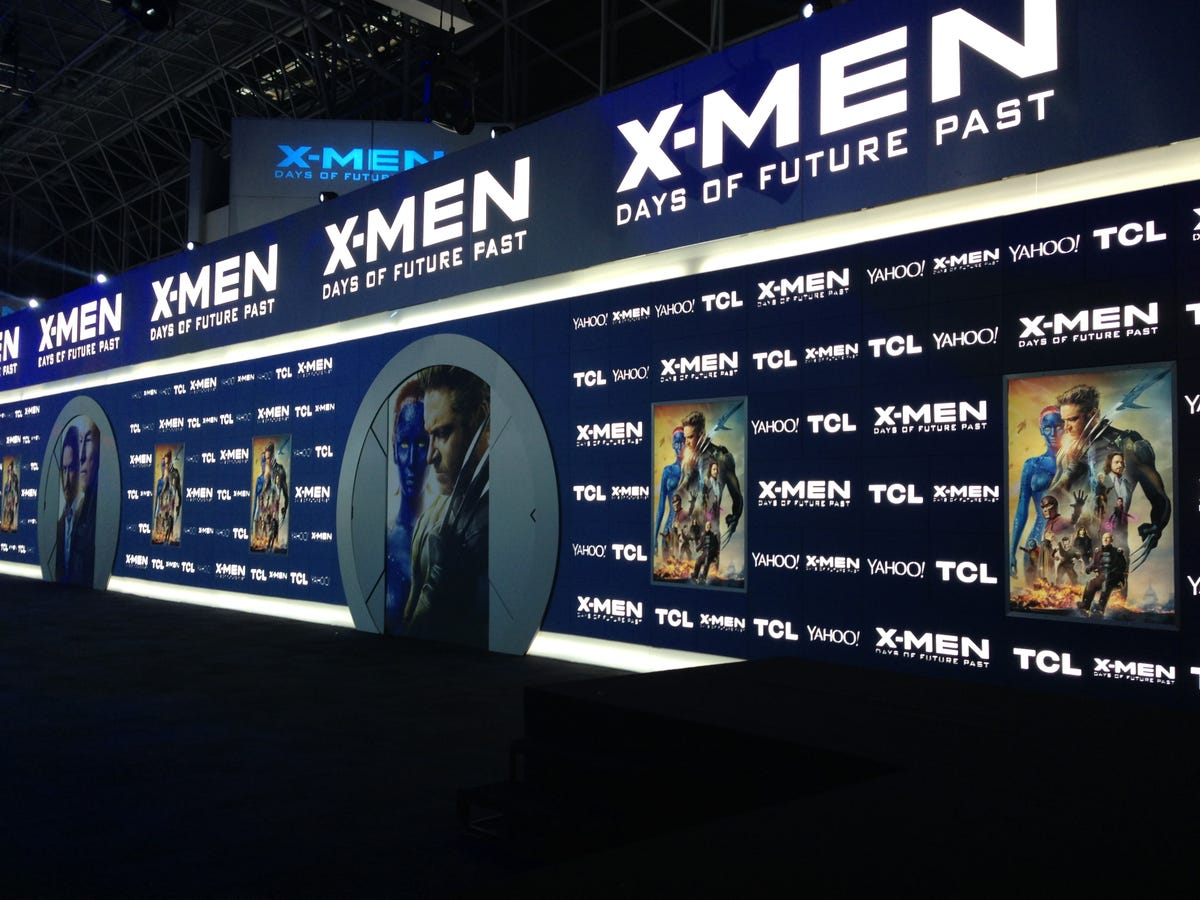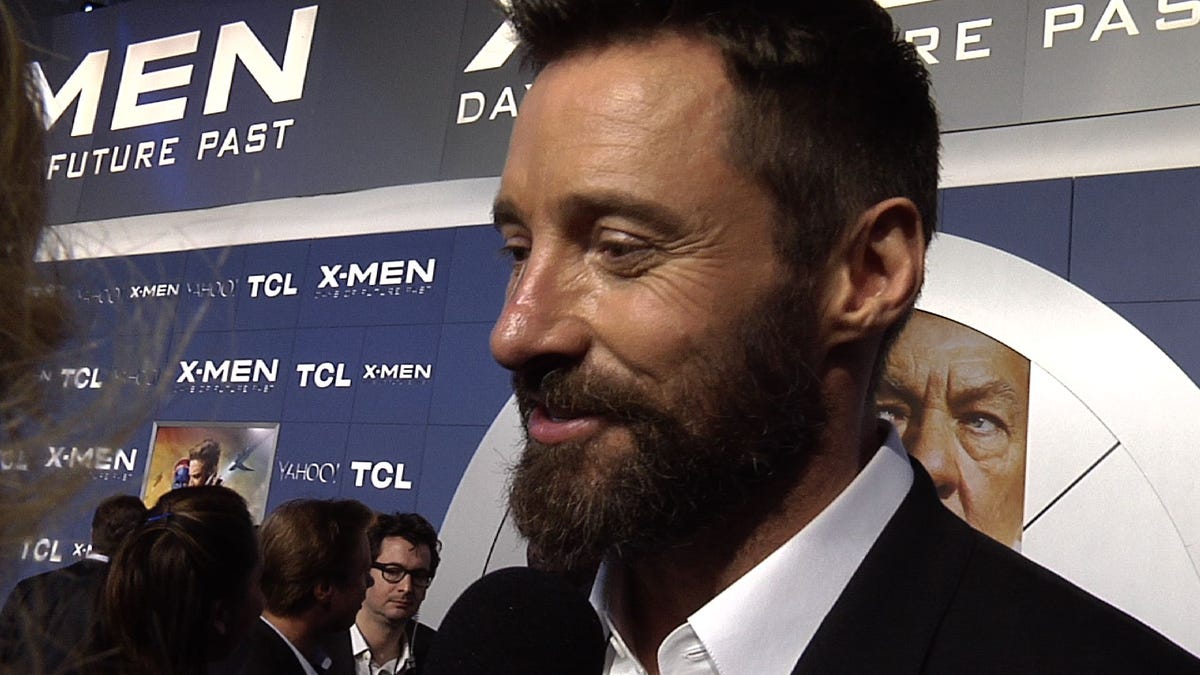
Roger Cheng/CNET
TCL is the biggest name in television you’ve probably never heard of.
The Chinese company is the third-largest LCD television manufacturer in the world, behind Samsung and LG. It offers a diverse portfolio of products, which ranges from cell phones — marketed in the US as Alcatel — to washing machines.
Still, TCL remains a virtual nonentity in the US, aside from the occasional bargain TV popping up on Amazon. It is ranked No. 13 in North America among TV manufacturers, according to NPD DisplaySearch. Up until 2011, it sold its televisions under the Thomson brand and has only recently started using its own name.


QC Liang’s Twitter account.
But TCL wants to break into the US in a bad way, as illustrated by a few key investments. In January 2013, it bought out the naming rights to what had been Grauman’s Chinese Theater in Hollywood, renaming it the TCL Chinese Theater. The company was also the marquee sponsor for the global premiere of the film, “X-Men: Days of Future Past,” with TCL LCD TVs lining the red carpet at the event on Saturday.
The moves are necessary to tap into what remains the key to success in the US television business: prominent placement at a big-box retail store.
“They have to develop more brand awareness through marketing activity,” said Paul Gagnon, an analyst at NDP DisplaySearch. “Then comes the willingness for stores to carry you.
CNET sat down with QC Liang, assistant president and managing director of branding at TCL to discuss the television business, the need for high-quality programming, and its plans to create a competitor to Netflix. The following is an edited transcript:
CNET: What is TCL? Liang: We are a 32-year-old company that started out of Guangdong, China. Now we are the third-largest LCD TV manufacturer. In addition, we have home appliances like air conditioning, washing machines, and lighting. It’s a very diversified company. We do basically everything related to electronics.
You’re the third largest LCD TV maker in the world. How come I haven’t heard that much about TCL? Liang: In the old days, you can see our products labeled under Thomson. We switched to the TCL brand from Thomson three years ago. Now we are still using the Alcatel brand for mobile phones in the US, Canada and international market. We had a very good year with mobile phone sales, with 3 million mobile phones in the US.
Really? I don’t see a lot of Alcatel phones in the market. Liang: It’s not yet available in the retail market. It’s mostly through the operators market. They do it as a package for subscribers who sign up for prepaid service.
Will you switch to the TCL brand for your phones? Liang: We will this year. But it’s to target the retail brand and to make the product more available to end users, rather than through the operators.
You also bought the naming rights to the Chinese Theater in Hollywood. What do you hope to gain with that? Liang: It’s what we called entertainment marketing. We bring the real Chinese elements to the theater. We’re trying to create a bridge between Hollywood and the Chinese movie sector. That’s why we’ve hosted lots of events and exchanges there.
Tell me more about the entertainment branding strategy. Liang: There’s a big transformation from the TCL side. We used to be more manufacture-focused or product-focused. Starting two years ago, because of the rise of Internet applications, smart TVs and smartphones, we felt there was a big demand in high-quality content and service. We thought it was going to be important for TCL and its customers to have direct access to high-quality content, which is why we’re trying to work with Hollywood studio.
So this is why you’re trying to build your own Netflix-type service? Liang: Sometime this summer, we’ll launch a brand-new content service we call GoLive. It’s a new distribution channel for Internet-based TV channels and also movies. It does not just cover TCL TVs, but it will also be on non-TCL TVs. Now we have more than 100 TV channels available and we’re talking about Hollywood studios and other professional organizations to have the latest movies available on that channel.
Why would the other TV manufacturers jump on board with this service? Liang: They’ll be willing because will do profit sharing with them. If they install GoLive in one TV set, they will get additional revenue. We want it to be an industry-wide platform for streaming video. Not just for free content but also for pay channels.
So when it launches in the summer, it’ll be largely Chinese programming? Liang: We will power more Chinese language programs. Later on, we’ll do more collaboration with European and American content providers. But it’ll be appealing to Chinese population outside of China.
Bottom line: Are you going after Netflix? Liang: More or less.
At the Consumer Electronics Show, you showed off televisions with Roku’s service built in. How does that relationship work? Liang: It’s a win-win for us. We use Roku to help promote customers. At the end of the day, it’ll help both sides be more competitive. Once you build up the loyalty, you can figure out the profit sharing and also have the customers pay more to watch your programs.
You also have a partnership with Imax. Tell me about that. Liang: We established a joint venture with Imax last year to develop and market high-end home theaters. R&D is making progress and we hope to have the products ready by the end of the year or early next year. The market we’re targeting is a premium population. The first product we want to launch is going to cost $250,000.
It’s going to be laser projector, large screen, professional speakers, interior decoration, and end-to-end access to Hollywood content. In other words, you can access the latest Hollywood movies in your home when it premieres. It will bring the Imax theater to the house.
Why is it so important for you to sign up for events like the X-Men premiere? Liang: With all the content needs, we felt entertainment would be a big deal for our customers, especially among the younger generation. I think Hollywood is really the center of global entertainment. We’ve been partnering with Hollywood studios since 2011 on blockbuster movies. [TCL also partnered on the launches of “Transformers: Dark of the Moon,” “The Avengers,” and “The Dark Knight Rises,” among others.]
We want to continue this strategy because it really helps us make the connection between TCL brand and young users. These movies create a lot of buzz. They are all the superheroes. They represent American culture, but they can also be a good source of positive energy.
The movies really stimulate confidence and courage, and that’s really important for the young generation because they are facing a lot of challenges in their lives and careers.


TCL
The US television business is a tough one to crack, particularly since the growth isn’t what it once was. What’s your strategy here? Liang: After we switched to the TCL brand, we sold mostly through Amazon. Since last year, we started working with the stores like Costco, WalMart, and Frys Electronics. They still represent a big chunk of sales. Online still represents a very fast growing portion of the business.
But how do you grow your market share? Liang: It takes time.
Everyone points to Vizio as a brand that came out of nowhere and has done very well. Are you trying to emulate that? Liang: We’re trying. But it’s difficult to replicate. They picked the Super Bowl. We’re now more into movie entertainment. We’ll see. It takes time to build up awareness. The US is very important if we want to succeed internationally. The US is the stage for all technology companies. By having a presence in the US, you have a chance to work with many partners in Silicon Valley, Hollywood, and elsewhere. It gives us a chance to compete at the highest level. We will put more resources in the US.
Do you have a target for when you want the TCL brand to be a known brand? Liang: We do. But it’s challenging. I think there’s still a good opportunity out here because of all the technology evolution. It takes a fully integrated strategy to compete in the US. You need to have the best products, best channels, and you got to have the best content and services. We have to be really prepared for the long term.
Over the next 10 to 20 years, we are looking to be in the top five among TV brands.
In order to get there, you need to kick someone out. Who do you see as vulnerable? Liang: We can’t comment on the competition. But we are going after Samsung [in terms of replicating its business model]. We think we’re more or less in the same portfolio. We’re just as diversified, and we’re global. We actually work very closely with Samsung in China. We source from Samsung, and they also source from us with panels.
How do you see 4K TVs helping you get into the US? Liang: 4K is not something new. The challenging part is the access to 4K content. With GoLive and other projects like Imax, we are trying to bring the 4K content to the customers.
What’s your strategy for selling 4KTV? We’re going to make it more available to common families. That’s because we have our own panel factory in China, and that can give us sufficient supply for 4K panels. I’m not sure if we’re going to undercut, but we’re going to be competitive.
How long will it be before I go to Best Buy and see a TCL TV on display? It shouldn’t take long. We are already talking to all of (the retailers).




